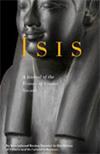流行病不平等:流行病历史上的社会和种族不平等
IF 0.9
2区 哲学
Q2 HISTORY & PHILOSOPHY OF SCIENCE
引用次数: 0
摘要
本文章由计算机程序翻译,如有差异,请以英文原文为准。
Epidemic Inequities: Social and Racial Inequality in the History of Pandemics
The historiography of pandemics and inequality can be characterized by two distinct but often overlapping traditions. One centers structural and political analysis, the other a race-critical approach to the production of human difference. This bibliographic essay reviews historical scholarship in these traditions spanning the past hundred years, with a focus on Anglophone literature in the history of medicine in the United States over the past half century. Early writing on the history of epidemics celebrated the conquest of disease through the application of laboratory research. Insights from social history and environmental history came to inform new analyses of epidemic inequalities, drawing questions of race, class, and empire into the frame during the 1960s and 1970s. The AIDS pandemic of the 1980s further oriented scholarship toward reckoning with stigma, identity, and human experiences of inequality while also troubling the relationship between medicine and the state. In more recent decades, the scholarship on race, social inequality, and pandemics has become deep and broad, remedying longstanding biases toward elite scientific actors and the metropolitan centers of Europe and the East Coast of the United States. In expanding their vision, historians also have engaged in more nuanced analyses of racialization as a social, environmental, and ideological process of embodying difference. Further, where earlier scholarship often relied on mortality data, there has been growing awareness of how numbers shape narratives and are shaped by them in turn. In its conclusion, the essay highlights emerging themes in race and inequality with particular attention to themes that have become prominent amid the global devastation wrought by the COVID-19 pandemic.
求助全文
通过发布文献求助,成功后即可免费获取论文全文。
去求助
来源期刊

Isis
管理科学-科学史与科学哲学
CiteScore
1.00
自引率
16.70%
发文量
150
审稿时长
>12 weeks
期刊介绍:
Since its inception in 1912, Isis has featured scholarly articles, research notes, and commentary on the history of science, medicine, and technology and their cultural influences. Review essays and book reviews on new contributions to the discipline are also included. An official publication of the History of Science Society, Isis is the oldest English-language journal in the field.
The Press, along with the journal’s editorial office in Starkville, MS, would like to acknowledge the following supporters: Mississippi State University, its College of Arts and Sciences and History Department, and the Consortium for the History of Science, Technology, and Medicine.
 求助内容:
求助内容: 应助结果提醒方式:
应助结果提醒方式:


